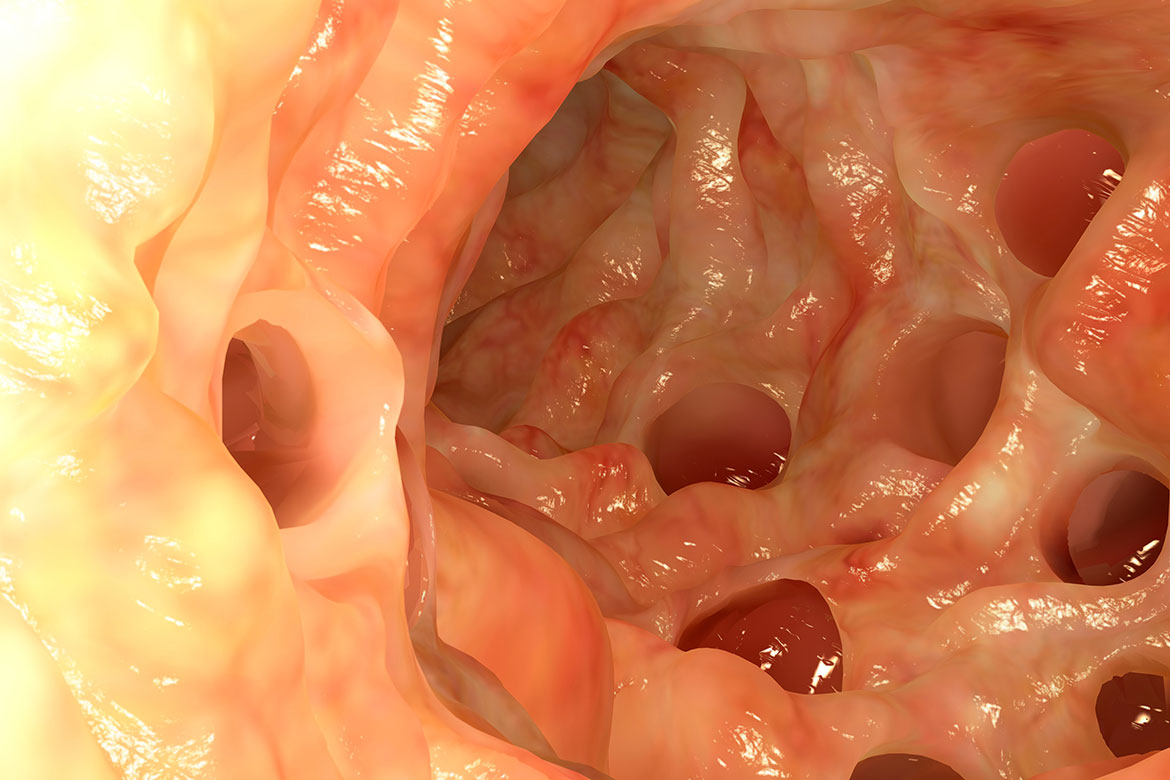CHRONIC INFLAMMATION
A possible therapy for fistulas
Unpleasant holes in the intestines: Researchers at the Zurich University Hospital have found a possible cause of fistulas.

A large intestine with pathological protrusions caused by Crohn’s disease. | Photo: Juan Gärtner
More than half of all people suffering from Crohn’s disease – a chronic complaint of the bowels – develop fistulas in the course of their lives. These are holes in the intestinal tissue that can lead to inflammation. “Unfortunately, the therapies and operations currently available do not provide a lasting solution”, says Michael Scharl, a gastroenterologist at the Zurich University Hospital. In search of a better remedy, his team has now been taking a closer look at a specific enzyme: metalloproteinase-9 (MMP-9). By using a staining technique, they have been able to detect large quantities of it in tissue samples from 22 patients, especially on the edge of fistulas.
Scharl therefore suspects that this enzyme promotes the development of fistulas by breaking down connective tissue. So, a drug that blocks MMP-9 might prevent the formation of fistulas, even in patients who do not respond to standard therapies. Scharl and his team are now testing their ideas on mice.




